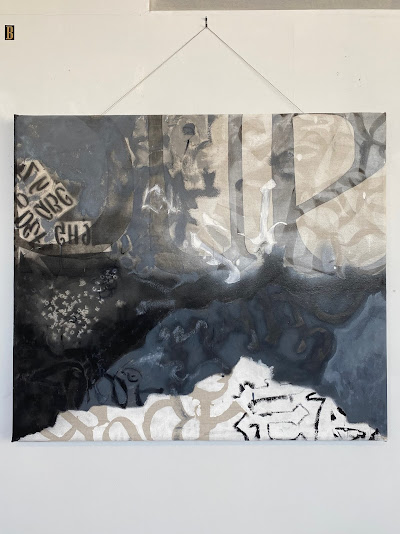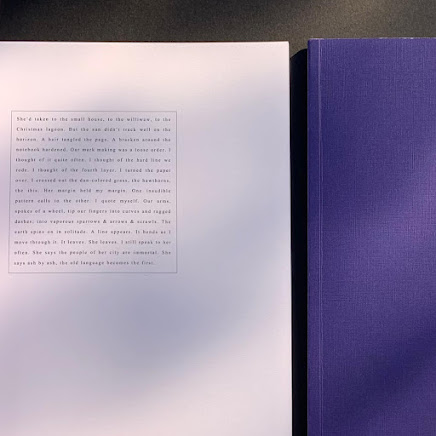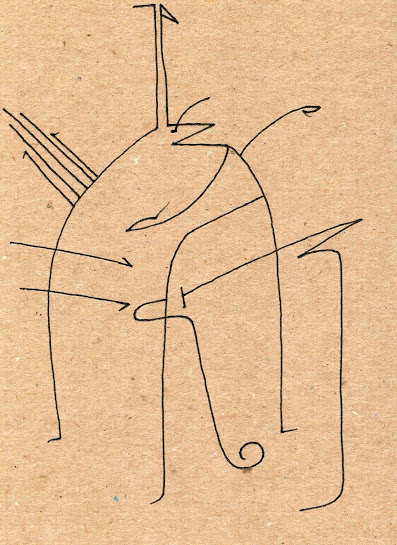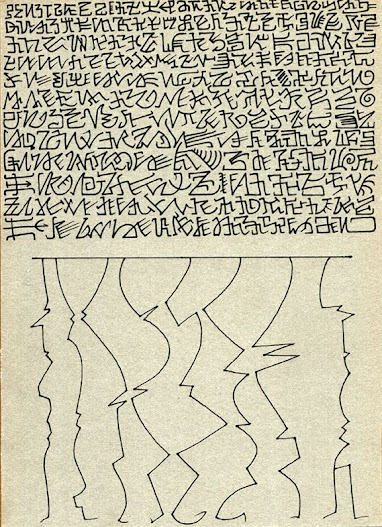This weblog explores asemic writing in relation to post-literate culture
Wednesday, October 27, 2021
Tuesday, October 26, 2021
Wednesday, October 20, 2021
Tuesday, October 12, 2021
Lines of Thought: Fidgetglyphs by Geof Huth
The contents of the book run the handwriting gamut. The book makes it clear from the start that with years of practice Geof has refined his handwritten art to an individual exactitude. The asemic lines in the book have a playful urban coolness to their prompt graphical presence. I found in turning the pages that there is always something new even though the writing has a consistency; you can tell that one person wrote, conceived, and stylized this work, since it is an autograph of a lone creative soul.
The volume is generous, resembling the Codex Seraphinianus in its commitment. But unlike its predecessor, instead of images, the asemic text is refined down to pure asemia, putting the manuscript in the company of Mirtha Dermisache's graphisms, and the personal interior gestures of Henri Michaux. But unlike the rolling lines of Michaux and Dermisache, Huth's symbols entertain and enlighten with the singularity of their form. The lines of thought and fidgetglyph symbols do spring to life when the book is opened and invite the reader to dance with them in the reader's mind.
In the back of the book there are insights into Geof's creative process. He states: "My hand writes, and my hand draws, and it doesn't know the difference." He goes on to talk about the history of his childhood fascination with text, and how he learned to write with "intensive drills." It is an interesting backstory about how and when he began to create his fidgetglyphs, and tells the origin of ideas from the creative seed of nonverbal communication in his book.
In asemic writing there is a conversation with the reader's eyes. It is up to the author to engage the reader with something that is interesting and inviting but still doesn't let go of the creator's mysterious spirit. Geof knows his intentions and expresses them with sincerity in his work. The abstract calligraphy announces its arrival into history and Huth takes something as simple as a basic scrawl and transforms it into a magnum opus of textual design.
Lines of Thought: Fidgetglyphs, in total, is one of the most intensive texts of asemic writing ever produced. It is stark and modern yet warm and inviting, and is presented beautifully in a fine volume. Many of the art works in the book seem to be simultaneously crawling in and out of the sand, their message evaporating into time. There is a casual divinity, lost in the exchange of insinuation yet ephemerally grappled. The text escapes into subtle color and is archived between the covers, and best of all—it doesn't repeat.























